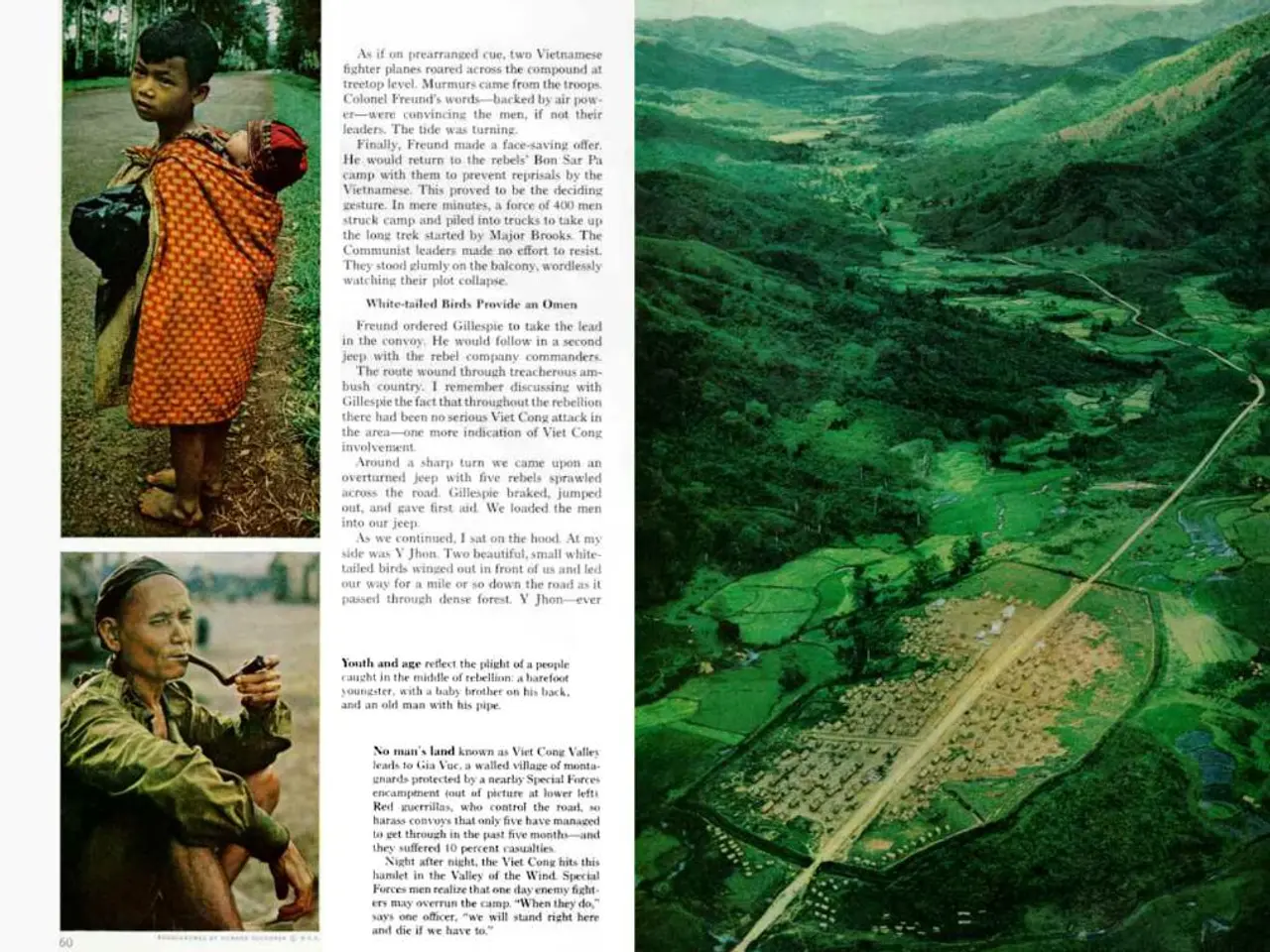Wikipedia Taken Over by Jihadist Groups
In a series of articles and commentaries, several writers have expressed concern over the portrayal of Zionism on Wikipedia, with accusations of bias and a lack of balance in the narrative.
The Debate over Wikipedia's Coverage of Zionism
The controversy revolves around the characterisation of Zionism as a settler colonialist or racist ideology, a view that has been criticised as misleading and inaccurate by many. Some argue that this perspective has been imposed through a coordinated campaign by anti-Israel activists, resulting in the reframing of Zionism from a national liberation movement to a colonialist or supremacist ideology.
This campaign is said to have minimised or removed references to the ancient Jewish presence in Israel, thereby downplaying Jewish peoplehood and national identity. Related topics, such as the characterisation of militant groups and hostile regional actors, have also been softened or sanitised.
Wikipedia administrators have responded to these concerns by imposing rare and unprecedented moratoriums on editing disputed sections related to Zionism, effectively freezing biased language in place and blocking new edits that might challenge prevailing narratives.
Historical Context and Balance
Wikipedia's own history documents Zionism as an organised nationalist movement that emerged with Theodor Herzl in 1897, rooted in earlier Jewish efforts and aspirations for a Jewish national home in Palestine. The platform acknowledges the Jewish diaspora's long history and the relatively unique nature of Israel's re-establishment as a nation-state after a long diaspora.
However, despite Wikipedia's guidelines striving for neutrality, the editorial process concerning Zionism-related content has been disrupted by organized political influences, resulting in perceived imbalances in some articles. External analysis suggests that some articles now privilege certain contested narratives, such as minimising ancient Jewish history and reframing Zionism negatively, reflecting ongoing editorial battles rather than fully balanced scholarship.
The Importance of Accurate Representation
The debate over Wikipedia's coverage of Zionism and the Israeli-Palestinian conflict highlights the importance of accurate and balanced representation in historical narratives. The tech-savvy and billionaires among Jews are urged to begin overwhelming the lies by inserting the truth online wherever and whenever possible, in every language on earth.
The sources cited in the entry for this information are prominent anti-Zionists such as Peter Beinart, Ilan Pappe, Sabbagh-Koury, Sami Hadawi, etc. The Wikipedia entry on Zionism is written from a pro-Islamist, pro-"Palestine" point of view, with an unbalanced focus on the "expulsion" of "Palestinians" in 1948 without balancing it with the fact that an equal number of Arab Jews were exiled from Arab and Muslim lands that same year and in the years to follow.
The Islamist Jew haters consistently post large lies on every major search engine online, while Wikipedia biographies of leading pro-Israel intellectuals are "slimed" for their Zionism, while figures who promote the false concept of "Islamophobia" are praised without criticism.
As the world grapples with the complexities of the Israeli-Palestinian conflict, it is crucial that platforms like Wikipedia strive for neutrality and accuracy in their coverage, ensuring that all perspectives are represented fairly and accurately.
[1] https://en.wikipedia.org/wiki/Wikipedia:Wikipedia_signpost/2015-06-09/Editorial_discussion#Zionism [2] https://en.wikipedia.org/wiki/Zionism [3] https://en.wikipedia.org/wiki/Israeli%E2%80%93Palestinian_conflict [4] https://en.wikipedia.org/wiki/Wikipedia:Wikipedia_Signpost/2016-08-22/News#Wikipedia_signpost_interview_with_Wikipedia_Arbitration_Committee_member_Michael_Sterkel [5] https://en.wikipedia.org/wiki/Aliyah
Examining the Current State of CoverageIn the realm of war-and-conflicts, politics, and general-news, the discussion over Wikipedia's representation of Zionism is gaining attention, with concerns surrounding bias and imbalance in portrayal. This is particularly evident in the platform's coverage of the Israeli-Palestinian conflict, where critics claim that certain articles feature pro-Islamist, pro-"Palestine" perspectives, and omit essential historical context, such as the ancient Jewish presence in Israel and the resulting Jewish diaspora.







